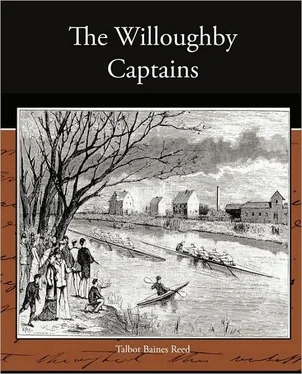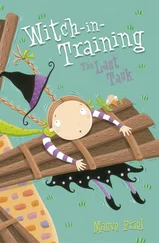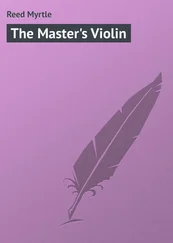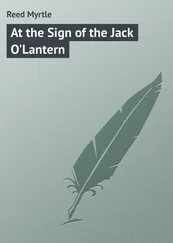He advanced to the group in a nervous manner, and, addressing Wyndham, said, hurriedly, “Please come to my room this evening, Wyndham,” and then, without waiting for a reply, or staying to notice the ominous looks of the two monitors, he departed, and proceeded as fast as he could back to Willoughby.
Chapter Ten
Wyndham Junior and his Friends
Wyndham, the old captain, just before leaving Willoughby, had done his best to interest Riddell in the welfare of his young brother, a Limpet in the Fourth.
“I wish you’d look after him now and then, Riddell,” he said; “he’s not a bad fellow, I fancy, but he’s not got quite enough ballast on board, and unless there’s some one to look after him he’s very likely to get into bad hands.”
Riddell promised he would do his best, and the elder brother was most grateful.
“I shall be ever so much easier now ,” he said, “and it’s awfully good of you, Riddell. I wouldn’t care for the young ’un to go wrong, you know. Thanks very much, old man.”
And so it came to pass that among the legacies which the old captain left behind him at Willoughby, the one which fell to Riddell was a young brother, slightly rickety in character and short of ballast.
A parting request like Wyndham’s would have been very hard for any friend to refuse; but to Riddell the promise “to look after young Wyndham” meant a great deal more than it would have done to many other fellows. It was not enough for him to make occasional inquiries as to his young protégé , or even to try to shield him when he fell into scrapes. Riddell’s idea of looking after a rickety youngster included a good deal more than this, and from the moment the old captain had left, amid all his own tribulations and adversities, the thought of young Wyndham had saddled itself on Riddell’s conscience with an uncomfortable weight.
This was the reason why he made the boy free of his study, and gave up a good deal of his own time in helping him with his work. And it was the same reason which prompted him on the afternoon spoken of in the last chapter, much against his inclination, to accost the three truants in Shellport, and request Wyndham to come to his study.
“You’re in for a nice sermon, my boy,” said Gilks, as the three walked home.
“I wish he hadn’t seen us,” said Wyndham, feeling uncomfortable.
“Why, you don’t suppose he’ll lick you?” said Silk, laughing.
“No, but he’ll be awfully vexed.”
“Vexed!” cried Gilks. “Poor fellow! How I’d like to comfort him! Take my advice and forget all about going to his study. He’ll not be sorry, I can tell you.”
“Oh, I must go,” said Wyndham. “I don’t want to offend him.”
“Kind of you,” said Silk, laughing. “Funny thing how considerate a fellow can be to another fellow who does his lessons for him.”
Wyndham blushed, but said nothing. He knew these two companions were not the sort of boys his brother would have cared to have him associate with, nor did he particularly like them himself. But when two senior boys take the trouble to patronise a junior and make fun of his “peculiarities,” as they called his scruples, it is hardly surprising that the youngster comes out a good way to meet his patrons.
Wyndham, by the way, was rather more than a youngster. He was a Limpet, and looked back on the days of fagging as a long-closed chapter of his history. Had he been a junior like Telson or Pilbury, it would have been less likely either that Game and Silk would take such trouble to cultivate his acquaintance, or that he would submit himself so easily to their patronage. As it was, he was his own master. Nobody had a right to demand his services, neither had he yet attained to the responsibilities of a monitor. He could please himself, and therefore yielded himself unquestioningly to the somewhat flattering attentions of the two seniors.
No, not quite unquestioningly. Short as was the time since his brother had left, it had been long enough for Riddell to let the boy see that he wished to be his friend. He had never told him so in words, but Wyndham could guess what all the kind interest which the new captain evinced in him meant. And it was the thought of this that kept alive the one or two scruples he still retained in joining himself to the society of Gilks and Silk.
And so he declined the invitation of these two friends to defy the captain’s summons.
“Well,” said Gilks, “if you must put your head into the lion’s mouth, you must, mustn’t he, Silk? But I say, as you are to get pulled up, I don’t see why you shouldn’t have all the fun you can for your money. What do you say to a game of skittles at Beamish’s?”
“ What a nice boy you are!” said Silk, laughing; “the young ’un doesn’t know Beamish’s.”
“Not know Beamish’s! — at the Aquarium!” said Gilks.
“No. What is he?” inquired Wyndham.
“He’s the Aquarium!” said Gilks, laughing.
“And do they play skittles in the Aquarium?” asked the boy.
“Rather!” said Silk; “it amuses the fishes, you know.” Beamish’s was, as Gilks had said, another name for the Shellport Aquarium — a disreputable place of resort, whose only title to the name of Aquarium was that it had in it, in an obscure corner which nobody ever explored, a small tank, which might have contained fishes if there had been any put into it. As it was, the last thing any one went to Beamish’s for was to study fishes, the other attractions of the place — the skittles, bowls, and refreshment bars — being far more popular. These things in themselves, of course, were not enough to make Beamish’s a bad place. That character was supplied by the company that were mostly in the habit of frequenting it, of which it is enough to say it was the very reverse of select.
At this time of day, however, the place was almost empty, and when, after a good deal of chaff and persuasion, Wyndham was induced to take a little turn round the place, he was surprised to find it so quiet and unobjectionable. The boys had a short game at skittles and a short game at bowls, and bought a few buns and an ice at the refreshment stall, and then departed schoolwards.
They reached Willoughby in good time for call-over, no one except Riddell being aware of their pleasant expedition. Still Wyndham, when it was all over , did not feel altogether comfortable. Not that he thought what he had done was very bad, or that he had sinned in deceiving the masters and breaking the rules of the school. What troubled him was that he knew Riddell would be vexed.
He repaired to the captain’s study with his books as usual after evening chapel and found him busy over his work.
But as soon as the boy entered, Riddell pushed the papers away rather nervously.
“Well, Wyndham,” said he, “I’m glad you’ve come.”
Wyndham deposited his books and looked rather uncomfortable.
Riddell had rather hoped the boy would refer to the subject first, but he did not. Riddell therefore said, “I was sorry to see you down in Shellport this afternoon, Wyndham. You hadn’t a permit, had you?”
“No,” said Wyndham.
“It’s hardly the thing, is it?” said the captain, quietly, after a pause.
His voice, devoid of all anger or self-importance, made Wyndham still more uncomfortable.
“I’m awfully sorry,” said he. “I suppose I oughtn’t to have gone. I beg your pardon, Riddell.”
“Oh!” said Riddell, “don’t do that, please.”
“You know,” said Wyndham, “as those two took me, it didn’t seem to be much harm. We only went to see the steamer come in.”
“The thing is,” said Riddell, “it was against the rules.”
Читать дальше












